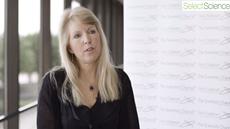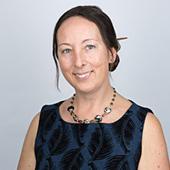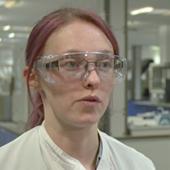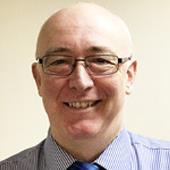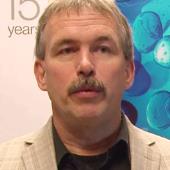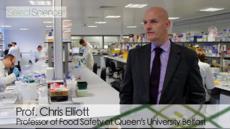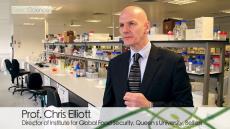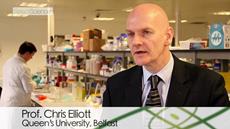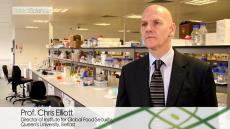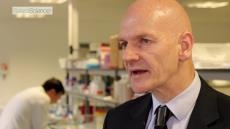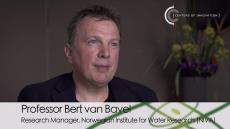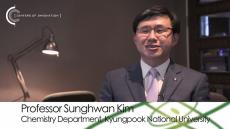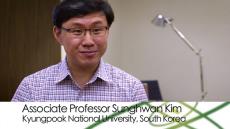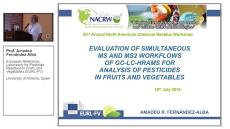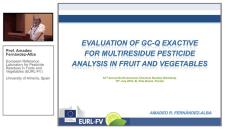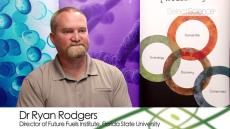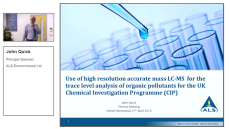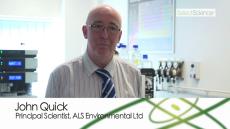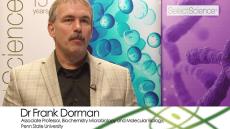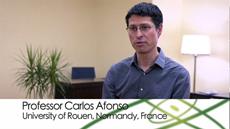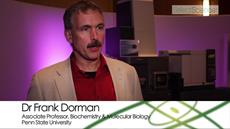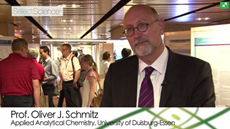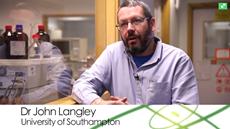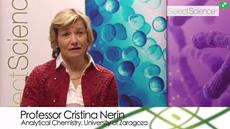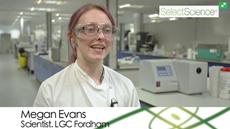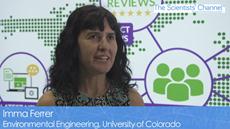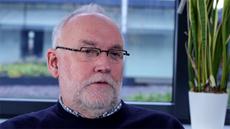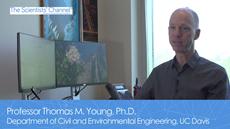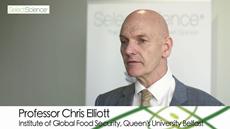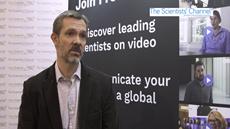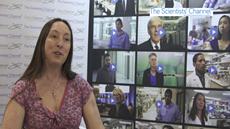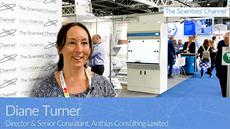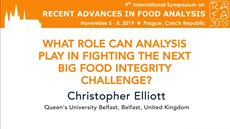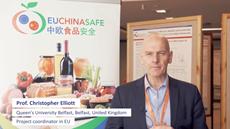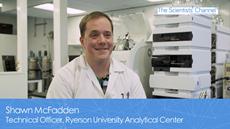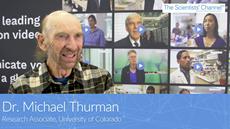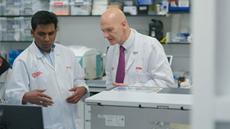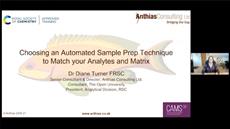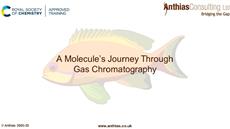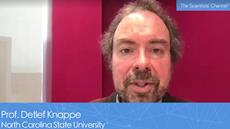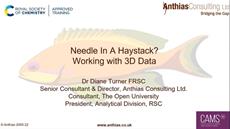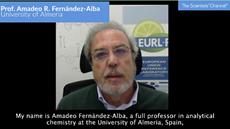- Partners for Progress in Oncology
- Accelerating Science Podcast
- Scientists' Choice Award® winners
- Blood testing
- Women in science
- SLAS
- Cell preparation, incubation & storage
- Microbiology & infectious disease
- Food safety & testing
- Cell culture
- Cancer research
- Cannabis testing
- Clinical laboratory diagnostics
- Mass spectrometry
-
More
Professor Susan Richardson
Professor of Chemistry at the University of South Carolina and ASMS President for 2020ASMS President, Prof. Susan Richardson, shares insights into the power of mass spectrometry for drinking water analysis
11 Aug 2022
In this video, Prof. Susan Richardson, President of ASMS, and Professor in the Department of Chemistry and Biochemistry at the University of South Carolina, discusses the impact of pollen on disinfectant by-product formation in drinking water. Her team has found that presence of pollen can exacerbate the levels of disinfectant by-product in water and has developed a sensitive gas chromatography-mass spectrometry (GC-MS) analytical method that has allowed the quantification of about 70 target disinfection by-products at the low part per trillion level. Richardson also describes further technology that powers her research, how she’s identified previously unknown disinfection by-products that are formed through pollen precursors, and hints at what she’s excited for in the future of mass spectrometry.
I'm Susan Richardson, President of ASMS, and I'm also a professor in the Department of Chemistry and Biochemistry at the University of South Carolina. One of the kind of off-the-wall projects, I must say that I had a student present a couple of days ago, is the impact of pollen on disinfection by-product formation in drinking water. And this is kind of, like, a strange curiosity I had. So, we know that in the springtime we have this massive onslaught of pollen coming off the trees, right? And of course, we sneeze, and our eyes itch, and all this, and the yellow's everywhere. Well, I was noticing just a lot of these pollen tassel kind of things, like getting washed into the storm drain in my neighborhood. All this pollen built up, and I thought, "Huh, that's going into the storm drain, that's going down into the creeks and the rivers, and it might go in our drinking water treatment plants. And I wonder what happens when we treat with chlorine, we disinfect our water with chlorine and other disinfectants, what happens when that pollen comes in? Does that impact the formation of these by-products that we've been studying for a long time?" And in fact, we found it does. It's kind of cool. And so, we find a lot higher levels of these by-product formations or concentrations when pollen is there. And nobody had ever looked at that before, but it was just a curiosity I had. These disinfection by-products are really important because there have been some human health effects associated with them. And now that we've discovered that pollen can contribute to the higher levels of these things, that maybe we need to do something about trying to remove that pollen before it gets in water treatment. So, we can keep those by-product levels low and make the water as safe as possible. These by-products we identified using mass spectrometry and also quantified some target ones, about 70 disinfection by-products, using these very sensitive GC mass spec analytical methods that we developed in my laboratory. So, we can go down to low part per trillion levels and look for the target compounds, but also using high-resolution mass spectrometry with gas chromatography coupled with high-resolution mass spectrometry to identify unknowns, new unknowns that those pollen precursors are contributing to forming. So, it's not just the target things that we know about already, but what about the unknown compounds. And another technique we've used in addition to high-resolution mass spect is GCGC mass spectrometry. We have a LECO instrument, so that when we have these very complex matrices, like the pollen...reacted pollen by-products, you have hundreds of things that can be present. And you need to be able to try to separate those things out so that we can get clean mass spectra, and we can ultimately identify what that unknown chemical is. There's a huge amount of data that these mass spectrometry analyses generate, especially the high-resolution data. And so, we obviously use library database searching as a first go. And we have an automated processing from the software, from the manufacturer software, LECO software, that we use that will automatically do a lot of the processing for us. So, it'll go through, look at each peak by GC mass spec, do a background subtraction because you want a clean spectrum, then do a library database search with the NIST Library. And the NIST Library has more than 200,000 chemicals in it. So if we're lucky, we get a match. So, sometimes we're lucky, sometimes we're not lucky. But then it's fun when we're not lucky because then we've got something new. Chances are nobody's identified it before. So, we use our brains to interpret the mass spectrum and looking at not just the molecular ion, but all the fragment ions that are formed. It's like a puzzle...it's like putting a puzzle together. I think the future is in trying to streamline the process of identifying these unknowns. So, right now, we're doing a lot of that manually and peak by peak just using our brains, right? And so that can take a really long time to do that. In the last five years or so, I've seen a lot of people developing their own software, so machine learning, new software tools, and especially, using R. R has become a hot thing now. We even have short courses on R here in ASMS. And they fill up like this. Everybody's interested. So, people are writing their own custom software for this. I don't have anybody in my group right now doing that, but I see that is a big future for this area because we have lots of data, and we need to find out how to do that quickly.
Share this video
Susan's Videos
Related Scientists
-
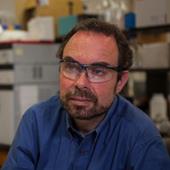
-

-
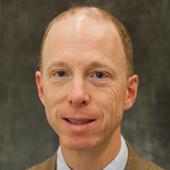 EnvironmentalProfessor Thomas M. Young Department of Civil and Environmental Engineering, University of California, Davis
EnvironmentalProfessor Thomas M. Young Department of Civil and Environmental Engineering, University of California, Davis -

-
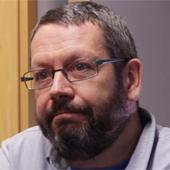 EnvironmentalProfessor John Langley Head of Characterisation and Analytics, Department of Chemistry, University of Southampton, UK
EnvironmentalProfessor John Langley Head of Characterisation and Analytics, Department of Chemistry, University of Southampton, UK -
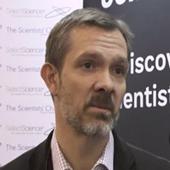
-

-

-
 Mass Spectrometry EnvironmentalDr. E. Michael Thurman Center for Environmental Mass Spectrometry, University of Colorado
Mass Spectrometry EnvironmentalDr. E. Michael Thurman Center for Environmental Mass Spectrometry, University of Colorado -
 Mass SpectrometryProfessor Chris Elliott Institute of Global Food Security, Queen's University Belfast, Northern Ireland
Mass SpectrometryProfessor Chris Elliott Institute of Global Food Security, Queen's University Belfast, Northern Ireland -
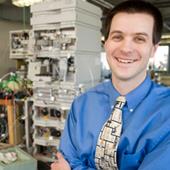
-
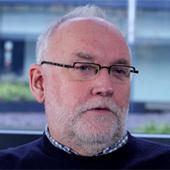
-
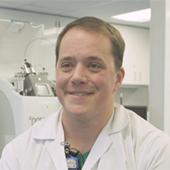
-
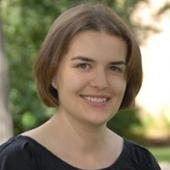
-
 Mass SpectrometryProfessor Amadeo Rodríguez Fernández-Alba Department of Agronomy, University of Almería
Mass SpectrometryProfessor Amadeo Rodríguez Fernández-Alba Department of Agronomy, University of Almería -
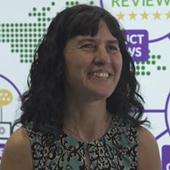
-
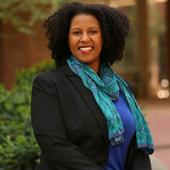
-
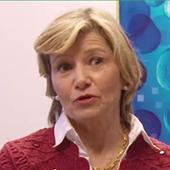
-
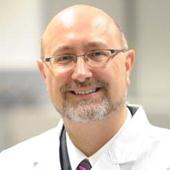 EnvironmentalProfessor Oliver J. Schmitz Applied Analytical Chemistry, University of Duisberg-Essen
EnvironmentalProfessor Oliver J. Schmitz Applied Analytical Chemistry, University of Duisberg-Essen -

Related Content
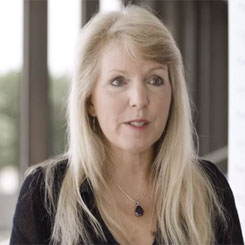
Professor Susan Richardson
Professor of Chemistry at the University of South Carolina and ASMS President for 2020 Professor of Chemistry at...Biography
Susan Richardson is the... MoreProfessor Susan Richardson
Professor of Chemistry at the University of South Carolina and ASMS President for 2020
Susan Richardson is the Arthur Sease Williams Professor of Chemistry in the Department of Chemistry and Biochemistry at the University of South Carolina in Columbia, SC, and has been President of ASMS, 2020-2022. Prior to coming to USC in January 2014, she was a research chemist for several years at the U.S. Environmental Protection Agency’s National Exposure Research Laboratory in Athens, GA. For the last several years, she has been conducting research in drinking water and in swimming pool water—specifically in the study of toxicologically important disinfection by-products (DBPs). These are the unintended consequence of trying to kill harmful microorganisms in drinking water and in pools. She works on identifying new DBPs or other unknown chemicals in the environment, drinking water, and pools using mass spectrometry and also studies wastewater treatment plants and the effects of disinfectants on river water. Most recently, she has started to investigate the impact of hydrofracking on DBPs in water. She has B.S. in chemistry and mathematics from Georgia College & State University, a Ph.D. in chemistry from Emory University, and an honorary doctorate from Cape Breton University in Canada and was recently named an ACS Fellow. She also serves as an Associate Editor for Water Research, on the Editorial Advisory Board for Environmental Science & Technology, and writes on emerging contaminants in water/environmental analysis for Analytical Chemistry.

